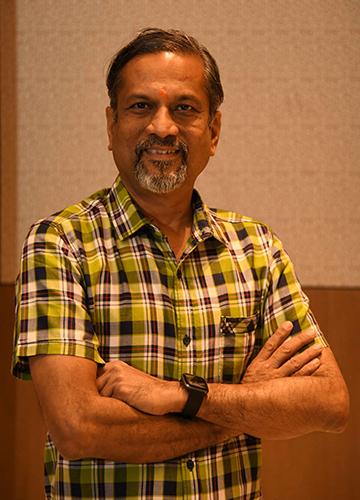SRIDHAR VEMBU’S journey with Zoho Corp, which he co-founded in 1996 and has been leading since 2000, has been an eventful one. Zoho is now the largest software product company in India and is among the major SaaS (software as a service) companies in the world. An alumnus of IIT–Madras and Princeton University, Vembu is a Padma Shri awardee. In an exclusive interview, he talks about the opportunities, the challenges and a possible recession. Excerpts:
Q/ There have been talks about a recession. How would it affect Indian SaaS and other technology companies?
A/ Most of the companies in the SaaS space have not been profitable. This is the fundamental issue now when the recession is about to strike. It has mostly been because of the excessive marketing expenditure, as they have spent a lot of money on customer acquisitions because there are too many players in the ecosystem. Recession is a time when such kind of overcapacity issues get resolved. The process is painful. However, in terms of customer adoption, I am very bullish that more and more organisations will adopt the SaaS model.
Q/How does the Indian market compare with the more mature SaaS ecosystems in the west?
A/ Those gaps have vanished and Indian customers and organisations are as much savvy as those in the mature markets. Today if you do not offer the latest and the best, you do not sell in India. Generally, the issue is the global economic landscape. I call the global economy a large earthquake zone. The issue has been of overcapacity that is specific to our industry, and Indian companies are chasing only a few customers. Broadly, the Indian market has caught up now and has seen rapid adoption of SaaS. Indian customers are, however, much more price sensitive than their western counterparts and are much less influenced by marketing. Indian customers are now realising the true value of cloud computing, too, but they are resistant to the high prices charged by companies.
Q/ Many Indian startups in the SaaS space have tasted success in the global arena. Where do you see them going ahead?
A/ For many SaaS startups, growth rates have come down and in the last year the costs of marketing and employee retention have gone up. It is a situation where the markets are slowing down and the costs are going up. Additionally, there are margin pressures and all these are challenges for Indian SaaS startups. Though all these issues will resolve, it will take time. It will not be an overnight phenomenon. I am still bullish about Indian SaaS companies making their mark in the global arena.
Q/ How is the funding for SaaS startups in India?
A/ Funding has slowed down as it all depends on how the public market rewards these companies. If the public markets slow down, the venture capital (VC) funding also slows down. Public markets are way down this year and VC funding has become very tough. It is difficult to predict as to when it will recover. Generally it takes two to three years, but I just cannot predict exactly when.
Q/ Recently, you said India’s thinking was dominated by what happened in the US and the UK.
A/ I do not accept the thought of many thinkers and experts in the US that there is only one economics for everyone. Economic thinking should be contextualised to our own population, our needs, our culture, our society and all of that. For example, our family structures figure in our economic thinking though very often we think that one size fits all and think that what works in the US and the UK will work here as well.
Economics cannot be delinked from one’s culture, social and other aspects. Take, for instance, weddings. They are an important part of the Indian culture and a critical part of the Indian economy. Weddings are one of major drivers of spending in our economy. Also, take the case of gold. Nowhere will you fiund such an infatuation with gold as in India. Economic thinkers and experts who ignore these factors cannot give meaningful advice. Such factors have to be taken into account while doing the forecasting for the Indian economy.
Q/ What are the new technologies that SaaS companies are working on?
A/ There are different fundamental technologies that range from databases to artificial intelligence. Many of the earlier SaaS companies are aiming to base their services around public cloud. Many SaaS companies investments are also going towards their cloud infrastructure. Zoho is working on fast database technologies on GPUs. We are also building data centres across the world to host those databases closer to our customers.


